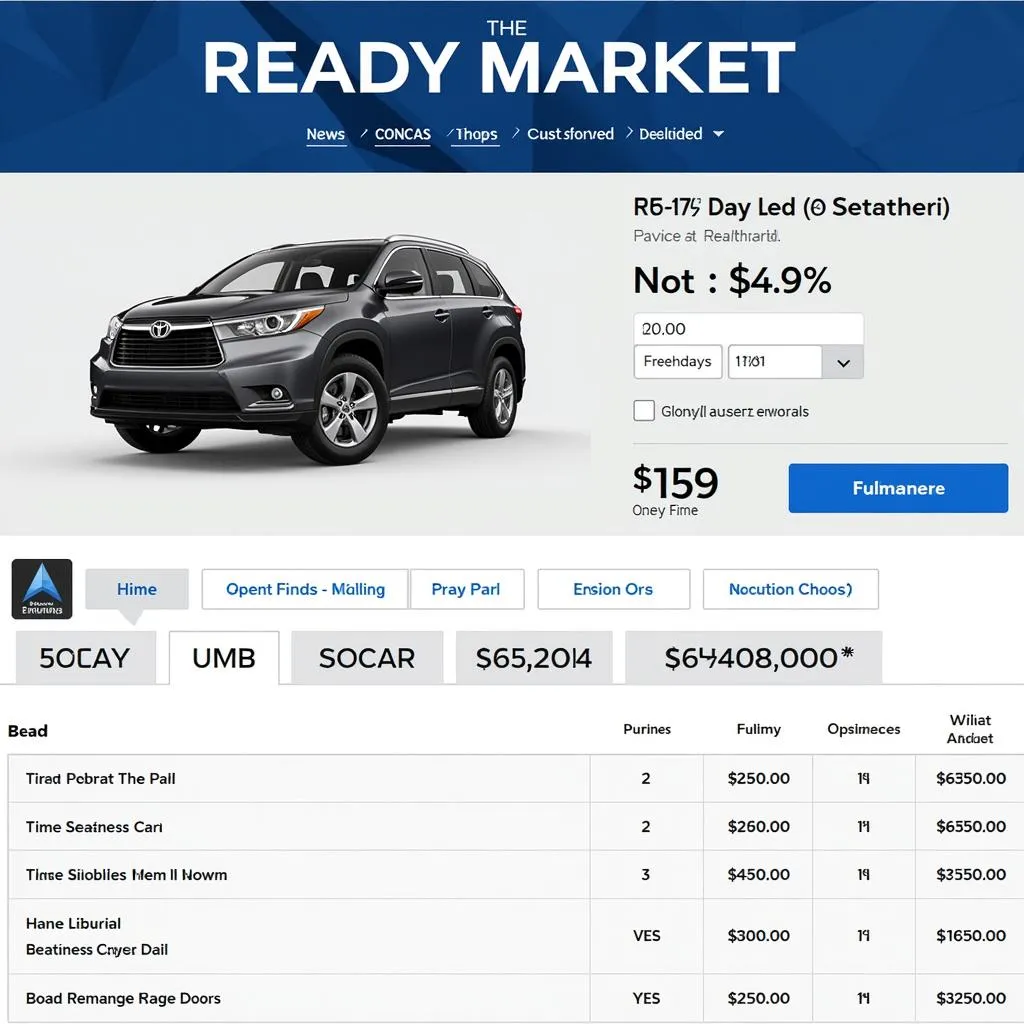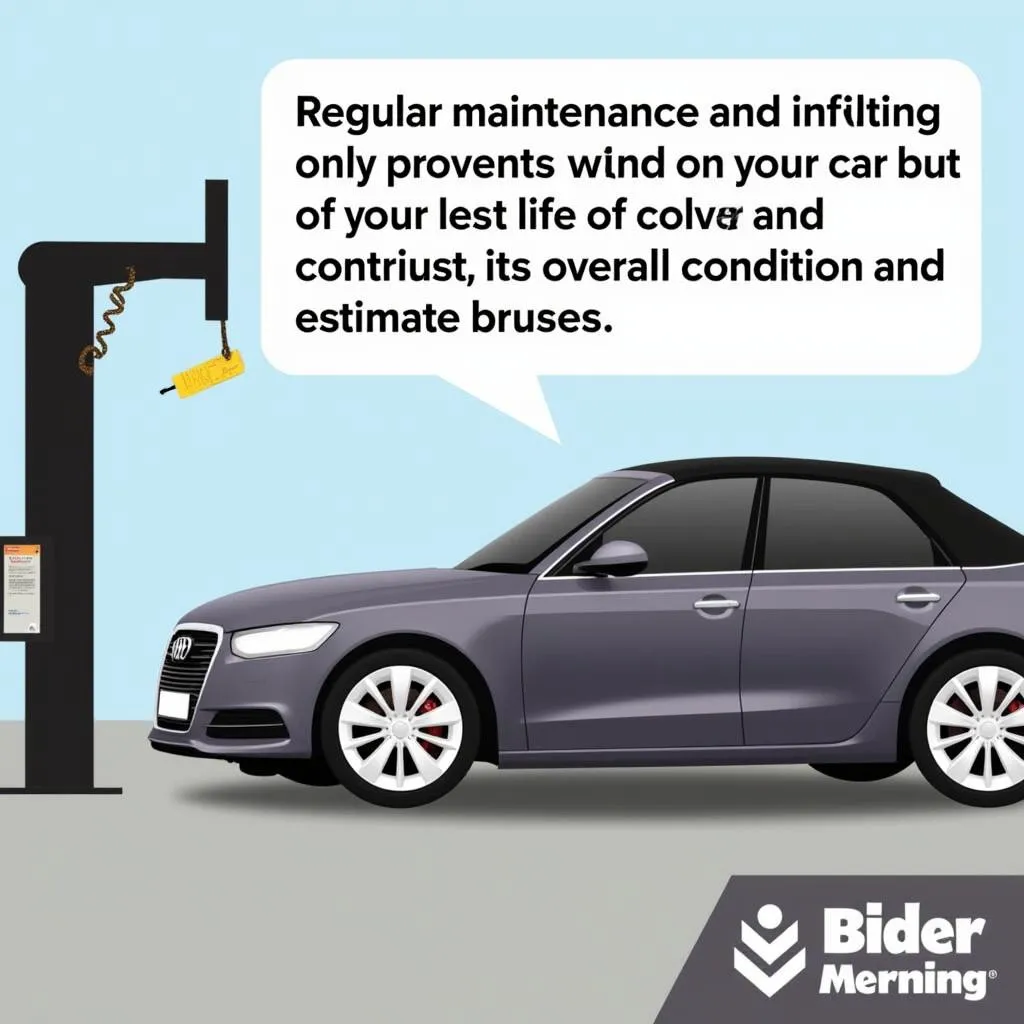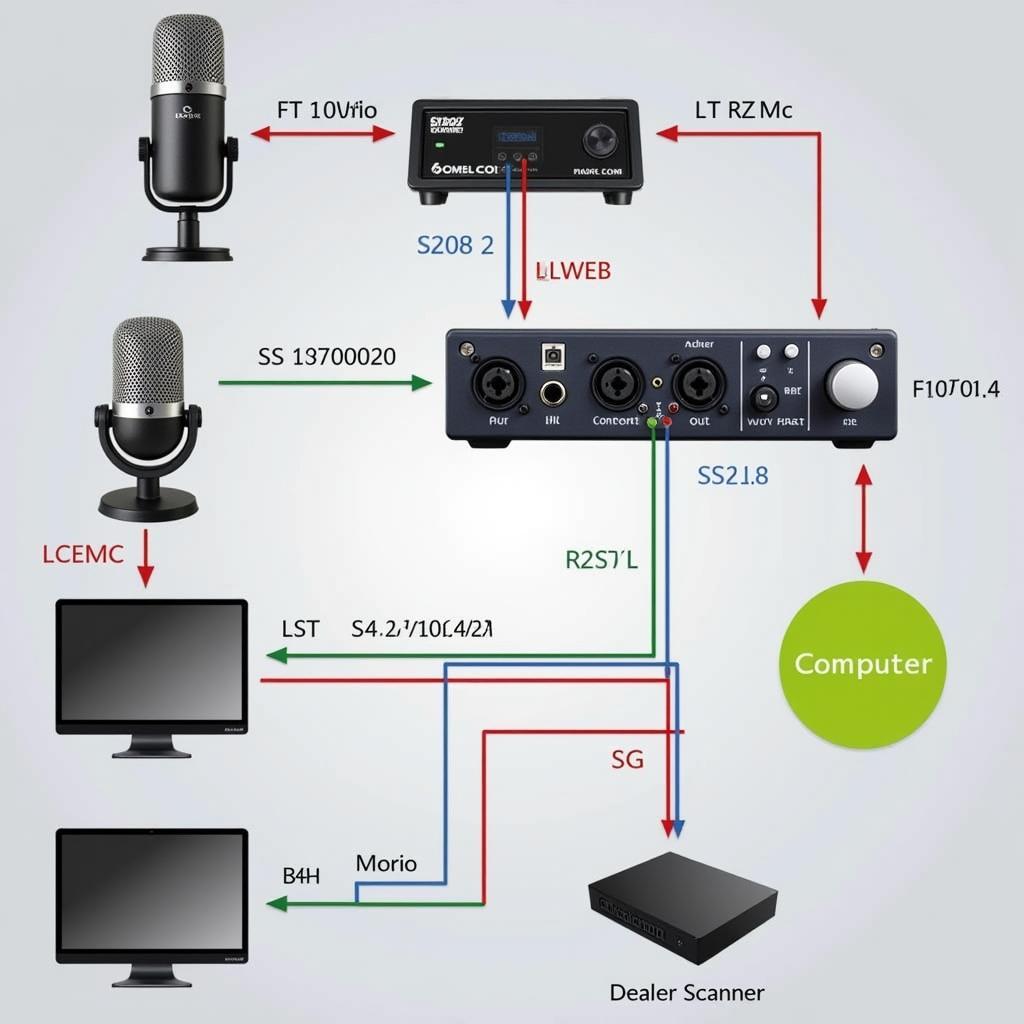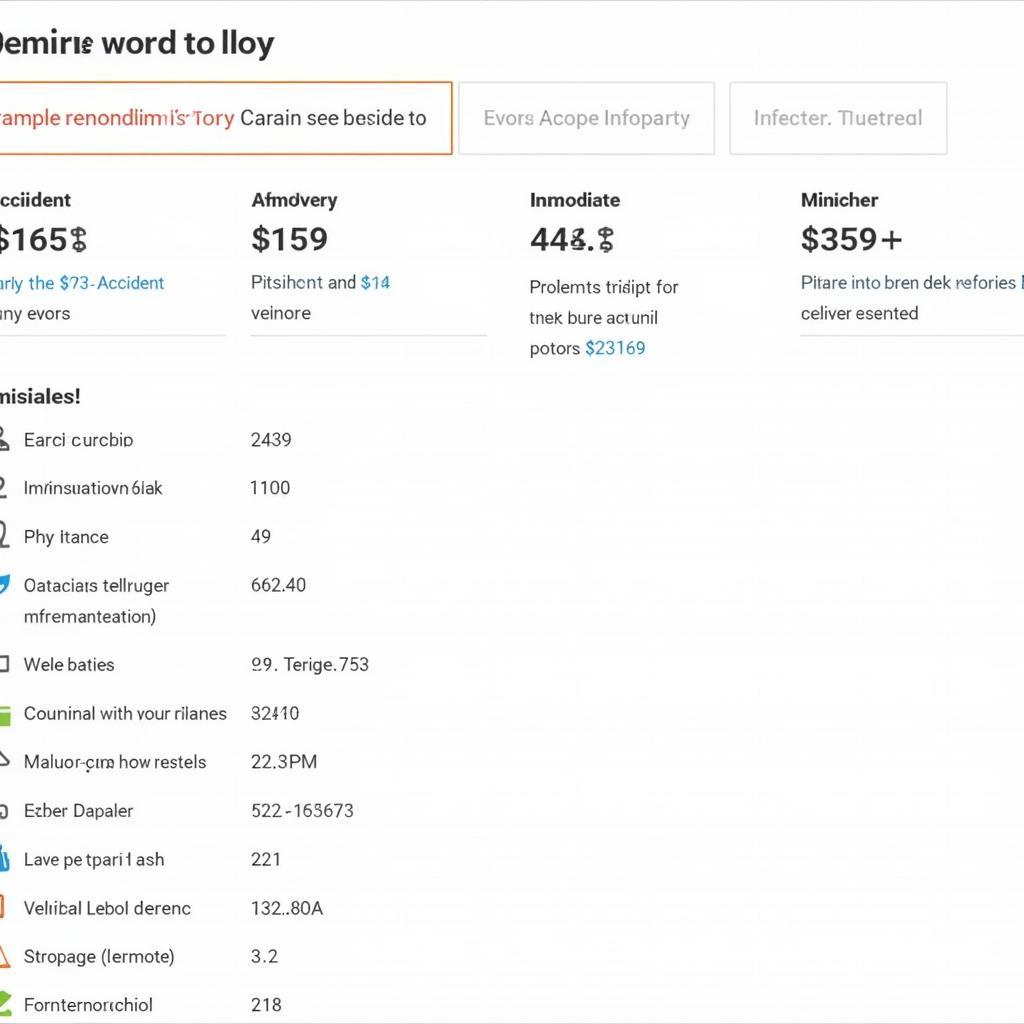Knowing the estimated value of a car is crucial for both buyers and sellers. It helps you make informed decisions, avoid overpaying or underselling, and ultimately secure a fair deal. This article will guide you through the intricacies of Car Estimated Value, providing insights to empower you during the buying or selling process.
What is Car Estimated Value?
Car estimated value, also known as market value, is the price a car is expected to fetch in the current market. It reflects the fair price for a particular car considering factors such as make, model, year, mileage, condition, and available features.
Why is Car Estimated Value Important?
Understanding car estimated value is essential for both buyers and sellers.
For Buyers:
- Avoid overpaying: Knowing the estimated value helps you avoid paying more than the car is worth.
- Negotiate better deals: Armed with knowledge of the estimated value, you can negotiate a more favorable price.
- Compare different options: It allows you to compare the estimated values of different cars and make informed decisions based on your budget and needs.
For Sellers:
- Set a realistic asking price: Understanding the estimated value helps you set an asking price that attracts potential buyers.
- Maximize your profit: By understanding the market value, you can avoid undervaluing your car and maximize your profit.
- Know when to hold or sell: The estimated value can help you determine whether to hold onto your car or sell it in the current market.
Factors that Influence Car Estimated Value
Several factors contribute to the estimated value of a car:
1. Make and Model:
- Brand reputation: Certain brands are associated with higher value and demand.
- Model popularity: Popular and sought-after models tend to have higher estimated values.
- Performance and features: Cars with advanced engines, high-performance features, and luxury amenities command higher prices.
2. Year of Manufacture:
- Depreciation: Cars depreciate over time, with newer models generally holding higher value.
- Model availability: The availability of specific models in the market can affect their estimated value.
3. Mileage:
- Lower mileage: Cars with lower mileage are considered more desirable and typically have higher estimated values.
- Driving conditions: The way a car has been driven can affect its estimated value, with cars driven in harsh conditions or with excessive wear and tear losing value faster.
4. Condition:
- Overall condition: The overall condition of the car, including its paint, interior, engine, and mechanical components, plays a major role in determining its estimated value.
- Maintenance records: Well-maintained cars with documented maintenance records have higher estimated values.
5. Available Features:
- Luxury features: Features such as leather seats, navigation systems, sunroof, and advanced safety features can significantly increase a car’s estimated value.
- Unique options: Cars with unique or rare features can command higher prices due to their desirability.
How to Determine Car Estimated Value
Several methods can be used to determine the estimated value of a car:
1. Online Valuation Tools:
- Kelly Blue Book (KBB): A widely used online resource that provides car estimated values based on various factors.
- Edmunds: Another popular online tool that offers estimated values and car reviews.
- NADA Guides: An industry standard for car valuation, providing detailed estimates for various makes and models.
2. Dealer Appraisal:
- Professional assessment: Car dealerships often provide free appraisal services, offering a professional assessment of a car’s estimated value.
- Potential sale negotiation: Dealerships are interested in buying or selling cars, so their appraisals can be useful for negotiation purposes.
3. Private Party Sales:
- Market research: Analyzing listings of similar cars for sale in your area can provide insight into their estimated values.
- Negotiation skills: Understanding the market value will equip you to negotiate a fair price with potential buyers.
Tips for Maximizing Car Estimated Value
Here are some tips to maximize the estimated value of your car:
- Regular maintenance: Keeping your car well-maintained with proper servicing and repairs will increase its value.
- Cleanliness: A clean and presentable car is more appealing to potential buyers, increasing its perceived value.
- Minor cosmetic repairs: Addressing any minor cosmetic flaws, such as scratches or dents, can enhance the visual appeal and estimated value.
- Document maintenance records: Maintaining detailed records of all maintenance and repairs will demonstrate the car’s good condition and increase its estimated value.
- Consider market trends: Keep abreast of market trends, including demand for specific makes and models, to optimize your car’s estimated value.
Conclusion
Understanding car estimated value is essential for both buyers and sellers. By using online valuation tools, seeking professional appraisals, and considering various factors, you can make informed decisions and secure a fair deal. Remember that maximizing your car’s estimated value requires proactive maintenance, meticulous presentation, and market awareness.
FAQ
1. What is the difference between estimated value and actual selling price?
Estimated value represents the anticipated price a car might fetch, while the actual selling price is the final price agreed upon by the buyer and seller. Factors like negotiation, demand, and market conditions can affect the actual selling price.
2. How often does car estimated value change?
Car estimated values fluctuate based on market trends, availability, and consumer demand. It’s recommended to check the estimated value regularly to stay informed about changes.
3. Can I get an accurate car estimated value without a professional appraisal?
Online tools can provide a good starting point, but a professional appraisal from a reputable dealership or valuation expert provides a more comprehensive and accurate assessment.
4. How important is mileage when determining car estimated value?
Mileage is a significant factor influencing car estimated value, especially for newer cars. Lower mileage generally equates to higher estimated value, as it indicates less wear and tear.
5. Does the car’s color affect its estimated value?
While not a primary factor, some colors might be more popular than others, potentially influencing demand and estimated value. However, this is typically a minor factor compared to other aspects.
 Dealer Appraisal for Accurate Car Valuation
Dealer Appraisal for Accurate Car Valuation
 Utilizing Online Valuation Tools for Car Estimated Value
Utilizing Online Valuation Tools for Car Estimated Value
 The Impact of Maintenance on Car Estimated Value
The Impact of Maintenance on Car Estimated Value
If you need further assistance, feel free to contact us:
WhatsApp: +1(641)206-8880
Email: [email protected]
Address: 276 Reock St, City of Orange, NJ 07050, United States
We have a dedicated customer support team available 24/7.

